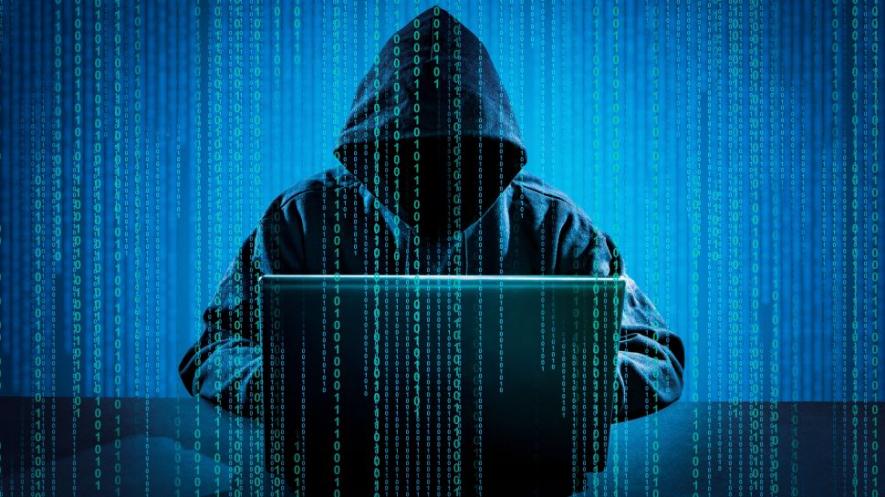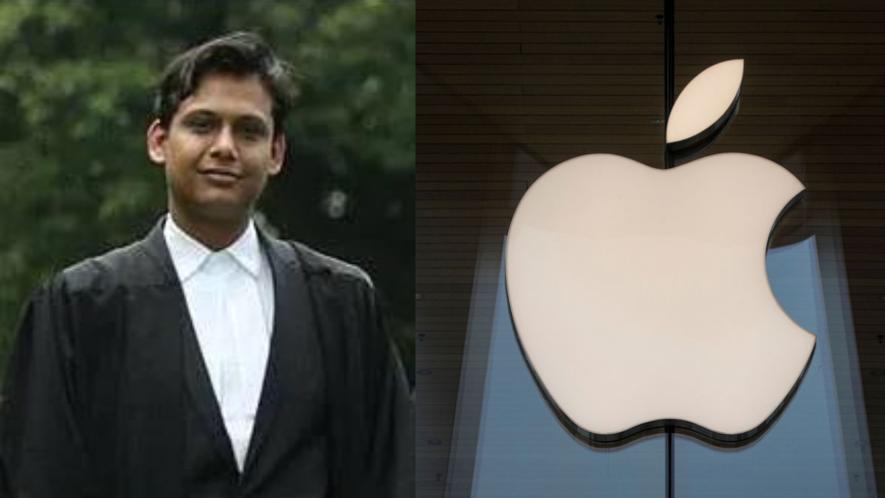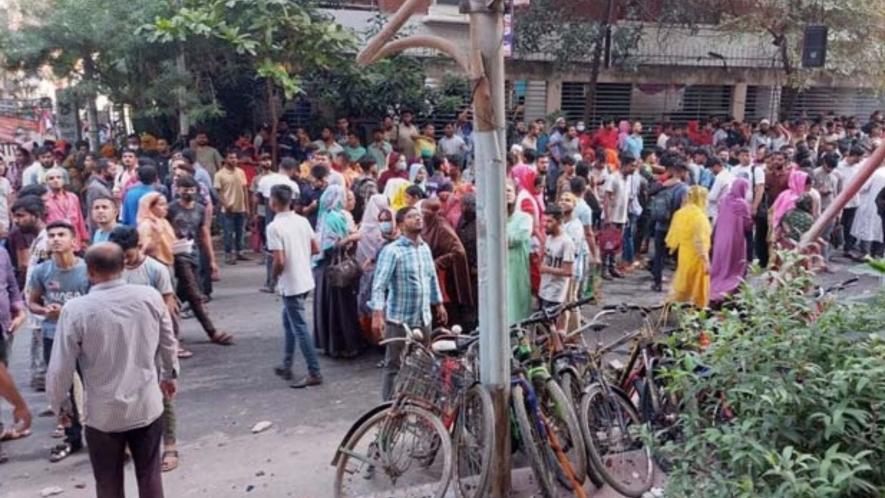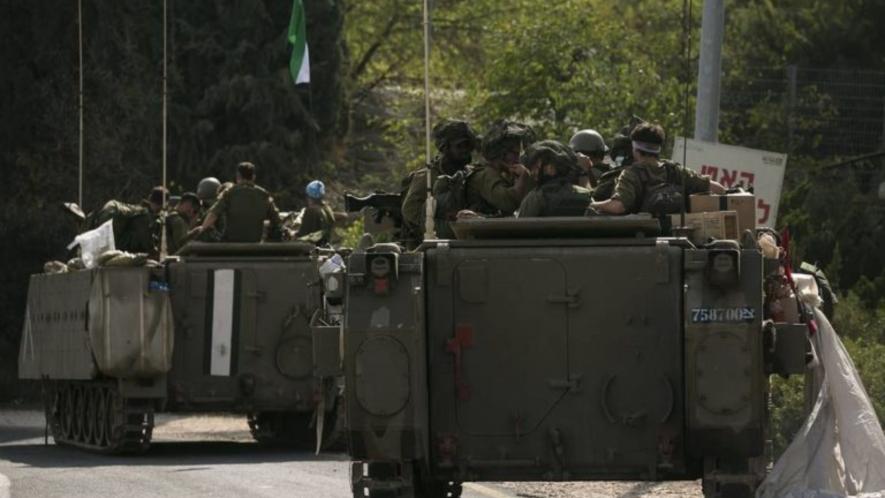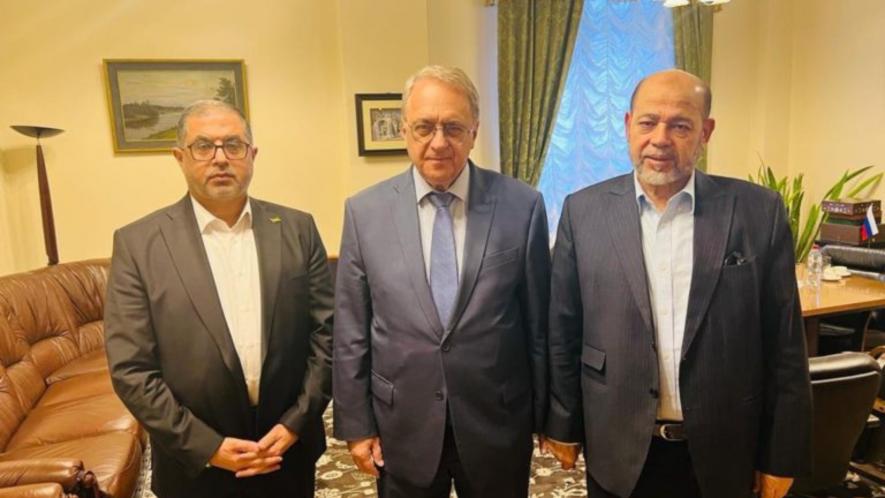Red hands raised in Congress as US seeks more funds for wars

WASHINGTON: As US secretaries of state and defence began to brief the Senate Appropriations Committee on Tuesday on the Biden administration’s request for more money to fund the wars in Israel and Ukraine, a line of anti-war protesters got up and raised red-stained hands in the air.
They shouted: “Ceasefire Now, Protect the Children of Gaza and Stop Funding Genocide” before they were removed from the room.
Secretary of State Antony Blinken and Secretary of Defence Lloyd Austin testified to the Senate Appropriations Committee on the Biden administration’s request for an additional $106 billion, which includes $14.3 billion for Israel, $9 billion for humanitarian relief — including for Israel and Gaza.
A press release sent to various media outlets said the protesters were from an organisation called CODEPINK.
The organisation said multiple members, including 29-year US Army veteran and former diplomat Col. Ann Wright and peace activist David Barrows, were arrested for their actions. CODEPINK said the red-painted hands of the silent audience members were meant to symbolise blood.
The protesters also said they attended the hearing to denounce the Biden administration’s support for “genocide” against Palestinians in Gaza.
Secretary Blinken did not respond to the protesters, but when he was asked later about the possibility of a ceasefire, he said that would only help Hamas regroup. A pause, however, for humanitarian reasons can be considered, he added.
Also on Tuesday, a prominent Jewish intellectual and New York Times columnist Thomas Friedman wrote in his column, “Israel, it’s time to consider a ceasefire”.
Similar sentiments were echoed by thousands of Jewish peace activists across the US who called for immediate ceasefire and justice for Palestinians. Rabbi Alissa Wise, a rabbinical council member with Jewish Voice for Peace, told CNN she wakes “up every single morning with tears in my eyes, rage in my heart and I channel it into action”.
Wise, who has distributed hundreds of messages demanding peace in the Middle East, said: “My coping mechanism is to yell into the void, yell into the halls of Congress.”
Earlier this week, thousands of Jews and other peace activists marched on Capitol Hill, where they carried Palestinian flags and rallied in support of Palestinian rights.
Rabbi Wise led a smaller sit-in with hundreds of activists inside one of the Capitol buildings. The action was organised by Jewish Voice for Peace (JVP) and IfNotNow, two of the largest US Jewish groups calling for a just and peaceful resolution to the Israeli-Palestinian crisis.
Last week, the UN General Assembly overwhelmingly called for an immediate humanitarian truce between Israel and Hamas, which was angrily dismissed by Israel.
“We’re watching a genocide unfold in real time. In just three weeks, the Israeli military has killed over 8,000 Palestinians in Gaza, among them over 3,000 children,” JVP said in a statement. “That’s more than the annual number of children killed in conflicts across the globe since 2019.”
JVP and its supporters shut down the Grand Central station in New York this weekend to emphasise the need for a ceasefire in Gaza.
“Ceasefire now.” “Let Gaza live,” Banners covering train schedules at Grand Central declared. “Never again for anyone” and “Palestinians should be free.”
JVP said that thousands attended the protest, about 500 participated in civil disobedience, and over 350 people were arrested, including rabbis, elected officials, elders, and celebrities. The sit-in was the largest act of civil disobedience in New York City since the Iraq invasion.
Recent opinion surveys show that the protests are having an impact on American public opinion, even though not as much as the protesters expect.
A News-Nation/Decision Desk HQ poll released on Monday found 49 per cent of respondents said their sympathies lie more with Israelis, while 10pc said their sympathies lie more with Palestinians. Another 26pc said they sympathised “about equal” between both Israelis and Palestinians, and 15pc said they weren’t sure.
Younger voters — aged 18-34 — were more likely than older voters to say they sympathise more with Palestinians as 24pc of that age group said they were with the Palestinians. While 52pc of Americans approve of President Biden’s handling of the conflict, 48pc disapprove.
Published in Dawn, November 1st, 2023




